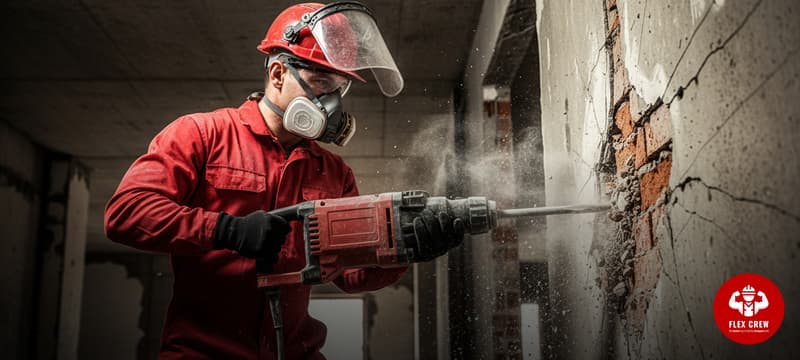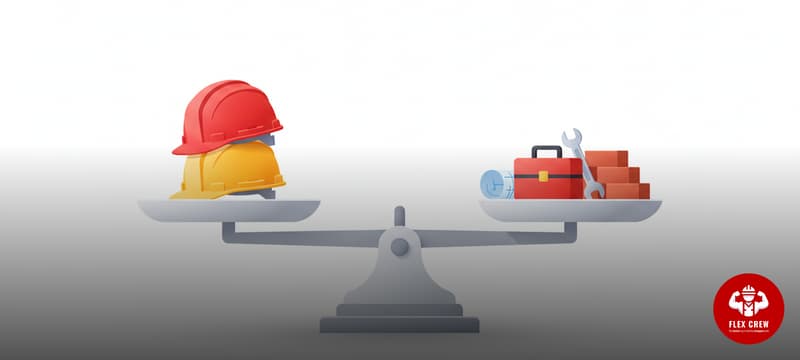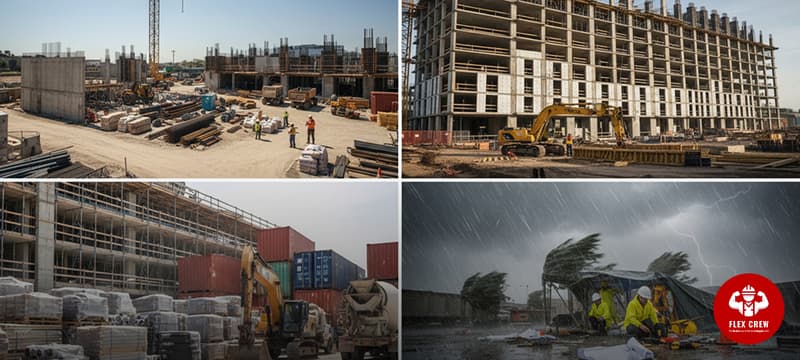If you're a construction contractor, project manager, or site supervisor aiming to run your commercial project smoothly, choosing the right commercial drywall contractor is critical. These professionals play a pivotal role in transforming raw spaces into functional, aesthetically pleasing environments through services like finishing drywall, framing walls, and employing specialized acoustic drywall installation techniques.
In this guide for 2025, we’ll walk you through vital aspects such as selecting the best commercial drywall contractors, budgeting for projects, understanding services being offered, and staying updated on latest trends.
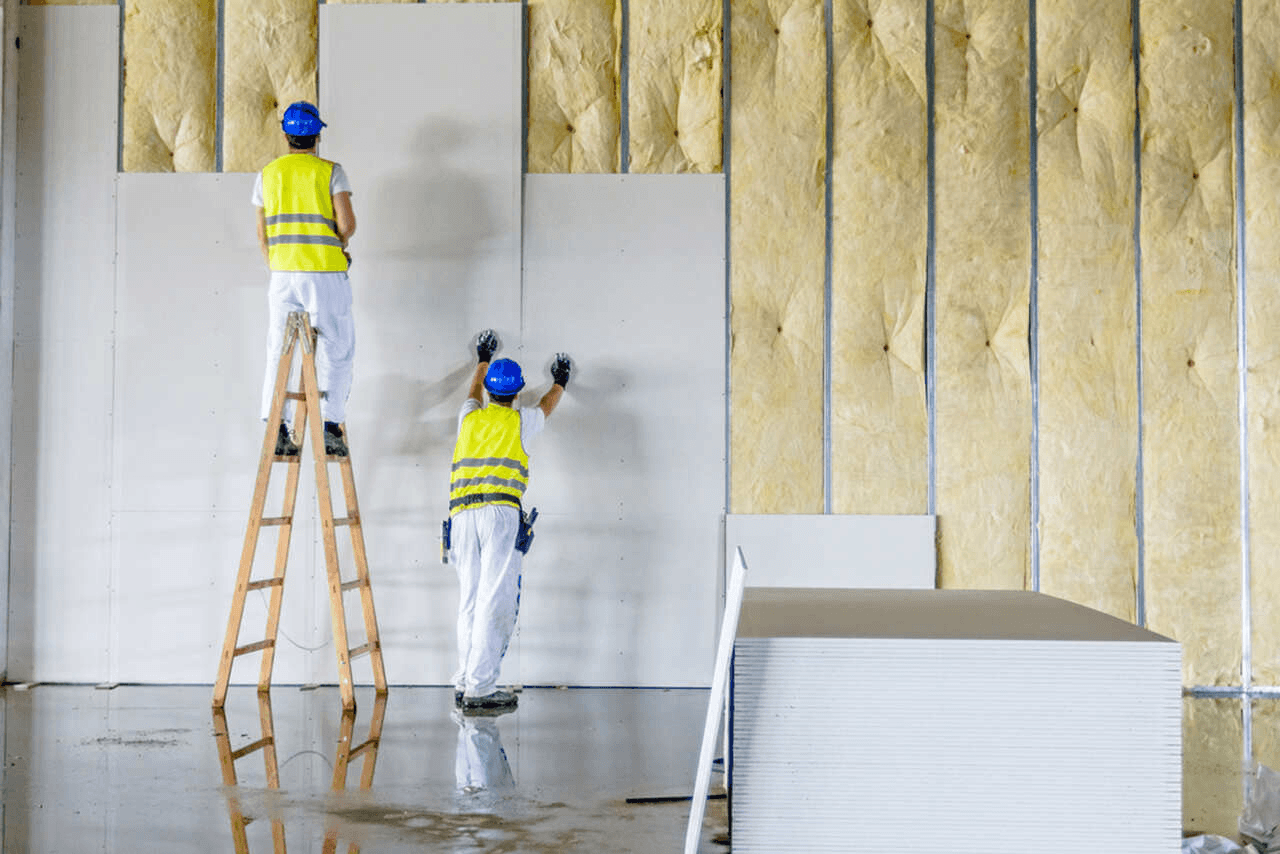
What Are Commercial Drywall Contractors?
Commercial drywall contractors are specialized professionals who can work on installation, repair, and finishing a drywall in commercial settings such as offices, retail spaces, hospitals, and industrial buildings. Unlike residential projects, commercial drywall work often involves larger-scale operations, strict building codes, and tight deadlines, requiring a higher level of expertise and precision.
Key Responsibilities and Skills Required
These contractors are tasked with more than just installing a drywall or completing a drywall for aesthetic purposes. Their responsibilities include:
- Project Planning: Collaborating with architects and project managers to ensure designs meet structural and aesthetic requirements.
- Installation and Finishing: Cutting, fitting, and securing drywall panels, followed by taping, mudding, and sanding for a smooth finish.
- Safety Compliance: Adhering to OSHA guidelines and local building codes to ensure a safe work environment.
- Specialized Skills: Proficiency in framing walls and advanced techniques like acoustic drywall installation for soundproofing.
A skilled contractor must possess technical know-how, physical endurance, and problem-solving abilities to handle the dynamic demands that are part of construction projects.
Services Offered by Commercial Drywall Contractors
Installing Drywall: Techniques and Tools
Installing drywall is the cornerstone of a contractor’s job. This process involves measuring and cutting drywall sheets to fit specific spaces, securing them to wall studs or ceilings, and ensuring a smooth surface for painting or texturing. Modern tools like automatic taping tools and laser levels have revolutionized the process, allowing for faster and more precise installations. According to a report by IBISWorld, the drywall installation industry has seen around 3.2% annual growth due to increased commercial construction activity, a trend expected to continue this year as well.
Framing Walls: Best Practices
Before installing a drywall, framing walls is essential to create a sturdy structure. Contractors use steel or wood studs to build frameworks that support the drywall. Best practices include ensuring proper alignment, using corrosion-resistant materials for longevity, and incorporating insulation for energy efficiency. Proper framing is crucial for both structural integrity and meeting building codes.
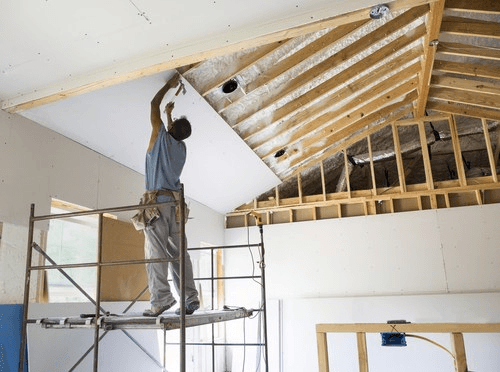
Acoustic Drywall Installation Technique: Why It’s Important
Acoustic drywall installation is a specialized technique used to reduce noise transmission in commercial spaces like offices, conference rooms, and healthcare facilities. This method often involves layering drywall with sound-dampening materials or using specific products like QuietRock. With noise pollution becoming a growing concern—studies show that 70% of office workers report distractions due to noise, this makes acoustic drywall technique a must-have in modern commercial builds.
How to Choose the Right Commercial Drywall Contractor
Finding the right contractor can make or break your project. Here’s a step-by-step guide to help you make an informed decision:
Evaluating Experience and Expertise
Look for contractors with a proven track record in commercial projects similar to yours. Ask for a portfolio of past work or case studies. For instance, a contractor experienced in hospital builds will understand the unique requirements of soundproofing and hygiene compared to a retail space. Industry veteran John Smith, a construction consultant with over 20 years of experience, advises, “Always prioritize contractors who’ve tackled projects of your scale—experience is better than promises anyday.”
Checking Certifications and Insurance
Ensure the contractor holds relevant certifications, such as those from the Association of the Wall and Ceiling Industry (AWCI), and carries adequate insurance, including general liability and workers’ compensation. This protects you from financial risks in case of accidents or damages on-site.
Reading Reviews and Testimonials
Online reviews and client testimonials offer valuable insights into a contractor’s reliability and quality of work. Platforms like Angi or local construction forums can provide genuine feedback. Don’t hesitate to ask for references and follow up with past clients to fathom satisfaction levels.
Key Takeaway: Prioritize contractors with specialized experience, valid credentials, and positive feedback to ensure project success.
Costs and Budgeting for Commercial Drywall Projects
Factors Influencing Cost
The cost of commercial drywall projects varies based on several factors:
- Project Size: Larger spaces require more materials and labor, increasing costs.
- Material Type: Standard drywall is cheaper than specialized options like acoustic or fire-resistant panels.
- Labor Rates: Depending on the region, labor costs can range from $25 to $50 per hour, as per the latest data from the Bureau of Labor Statistics.
- Complexity: Custom designs or tight deadlines may incur additional charges.
On average, commercial drywall installation costs between $1.50 and $3.50 per square foot, excluding finishing.
Comparing Quotes from Different Contractors
Don’t settle with the first quote you receive. Request detailed estimates from at least three contractors, breaking down costs for materials, labor, and additional services. Be wary of unusually low bids, as they may indicate subpar materials or inexperienced labor. A balanced quote with transparent pricing is a sign of professionalism.
Trends in Commercial Drywall Installation for 2025
Sustainable Practices
Sustainability is no longer optional in construction but is a must. Contractors are increasingly adopting eco-friendly materials like recycled drywall and low-VOC finishes to reduce environmental impact. According to a 2023 McKinsey report, 60% of construction firms are prioritizing green building practices, a trend set to dominate in 2025 as well due to tightening regulations.
Technological Advancements in Tools and Techniques
Technology is transforming drywall installation. Tools like robotic drywall hangers and AI-driven project management software are improving efficiency and reducing errors. Drones are even being used for site inspections to ensure precision in large-scale projects. Staying ahead of these advancements can give contractors a competitive edge.
Conclusion
In 2025 selecting the right commercial drywall contractor is a game-changer for construction projects. From installing drywall and framing walls to mastering acoustic techniques, these experts bring precision and efficiency to the table. By understanding their services, evaluating costs, and staying informed about trends like sustainability and technology, you can make a confident choice that aligns with your project needs. Take time to research, compare quotes, and prioritize experience—your project’s success depends on it.
FAQ
1. How much does commercial drywall cost?
Commercial drywall installation typically costs between $1.50 and $3.50 per square foot, depending on project size, material type, and location. Finishing services may add to the total expense.
2. How much do drywall contractors charge per hour?
Drywall contractors usually charge $25 to $50 per hour, depending on regional labor rates and expertise, according to 2023 data from the Bureau of Labor Statistics.
3. What kind of drywall is used in commercial buildings?Commercial buildings often use standard, fire-resistant, or acoustic drywall, depending on the purpose or requirement. Fire-resistant drywall is common in high-traffic areas, while acoustic drywall is used for noise control in offices or hospitals.
4. How to pick a drywall contractor?
Choose a contractor based on experience, certifications, insurance, and client reviews. Request detailed quotes and references to ensure they meet your project’s needs.
5. What are the latest trends in drywall installation?
Key trends for 2025 include sustainable materials like recycled drywall, low-VOC finishes, and tech innovations such as robotic tools and AI project management systems.
